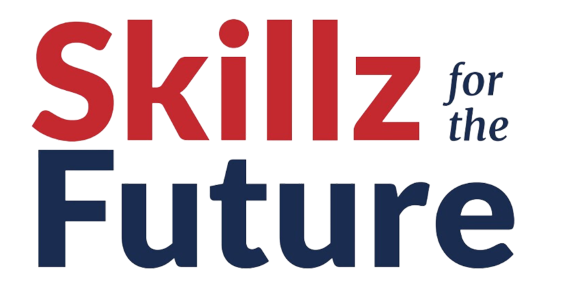In the ever-evolving landscape of employment, the term ‘soft skills’ resonates loudly. Employers frequently lament the scarcity of candidates possessing these skills, often pointing fingers at millennials, school leavers, or simply the younger generation, asserting a deficit in the much-sought-after ‘soft skills’ crucial for today’s workplace. But what exactly do these elusive skills entail?
Soft skills, sometimes interchangeably known as transferable skills, encompass a broad spectrum of desirable qualities for employment that transcend specific technical expertise. They include interpersonal skills, often dubbed as ‘people skills’ or ‘social skills’, but their scope extends far beyond mere social interactions.
Soft skills constitute those skills that are not technical or job specific. They encompass social skills, interpersonal skills, and a positive attitude—qualities that define your relationships with others and your approach to life and work.
In contrast, ‘hard skills’ typically describe job-specific abilities, ranging from professional skills like bricklaying or accountancy to medical expertise such as diagnosis and treatment. Unlike hard skills, which are trainable and testable through exams, soft skills are often deemed some of the most challenging skills to develop.
The Relative Importance of Hard and Soft Skills
While job-related expertise remains fundamental, the past few decades have witnessed a growing realisation that soft skills may, in fact, be paramount in determining success levels. Hard skills serve as the basic prerequisite for functioning within a particular workplace, but the ability to relate to others and navigate the intricacies of work—soft skills—often becomes the deciding factor for career success.
Principles of Competition
Consider soft skills through the lens of competition principles. Imagine yourself as a company introducing a groundbreaking technology, elevating your products above the rest. However, as competitors catch up, your unique edge diminishes. Here, soft skills become your new competitive advantage, akin to a sterling reputation for customer service.
Soft skills, akin to emotional intelligence, extend beyond recognising and managing emotions. They delve into how you organise yourself and approach life. The good news is that, like hard skills, soft skills are learnable and teachable. The challenge lies in their inherent complexity and the absence of a straightforward measure of success.
Developing Key Soft Skills
1. Communication Skills: Communication skills consistently top the list of essential skills in job advertisements. Strong communicators can build lasting relationships, listen effectively, and adapt their communication style to different situations. Investing time in enhancing communication skills is pivotal for overall workplace success.
Pro Tip: Cultivate active listening habits, and tailor your communication style to suit diverse workplace scenarios.
2. Making Decisions: The ability to make decisions holds intrinsic value for employers and is crucial for personal advancement. Decision-making skills, coupled with problem-solving abilities, empower individuals to navigate life’s complexities with confidence.
Pro Tip: Focus on the decision-making process rather than fixating on the outcome. The act of deciding and moving forward is key.
3. Self-Motivation: Self-motivated individuals thrive without constant supervision. They exude positivity and resilience, bouncing back from challenges. This skill, intertwined with personal resilience and adaptability, positions individuals as dependable assets in any workplace.
Pro Tip: Cultivate a positive mindset and view challenges as opportunities for growth.
4. Leadership Skills: Leadership skills encompass the ability to lead, manage, and motivate others. While developing leadership skills may require intentional effort and practice, they are invaluable when the need to assume a leadership role arises.
Pro Tip: Engage in leadership training courses and explore diverse leadership styles to refine your approach.
5. Team-Working Skills: Team-working skills, essentially interpersonal skills, form the bedrock of effective collaboration. Strong communication, active listening, and an understanding of team dynamics contribute to seamless teamwork.
Pro Tip: Familiarise yourself with Belbin’s Team Roles and balance ‘task’- and ‘process’-focused skills.
6. Creativity and Problem-Solving Skills: Creativity and problem solving skills are highly valued for their perceived difficulty in development. While some may argue that creative thinking is innate, intentional efforts can nurture these skills over time.
Pro Tip: Embrace a growth mindset, welcome challenges, and explore diverse problem-solving approaches.
7. Time Management and Ability to Work Under Pressure: The ability to manage time effectively and thrive under pressure is often considered an attitude more than a skill. These skills, intertwined with a strong work ethic, are prized by employers for their impact on productivity.
Pro Tip: Prioritise tasks, set realistic deadlines, and view time management as a strategic advantage.
8. Positive Attitude: Positive thinking, far from being ‘fluffy,’ significantly influences workplace dynamics. A positive attitude fosters enthusiasm, friendliness, and a ‘can-do’ mindset, contributing to enhanced individual and team performance.
Pro Tip: Cultivate a positive mindset by focusing on solutions, celebrating successes, and fostering a collaborative atmosphere.
While this list is by no means exhaustive, it serves as a compass for navigating the vast landscape of soft skills. Employers and individuals may prioritise different skills based on specific contexts. However, investing in the development of the skills outlined in this guide is likely to yield dividends not only in job searches but also in any career pursuit and life in general. As you embark on the journey of skill development, remember: mastery of soft skills is not just a professional asset; it’s a life skill.
